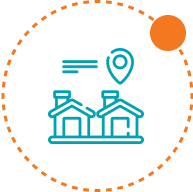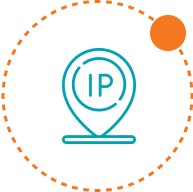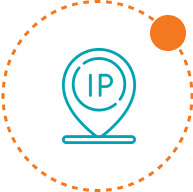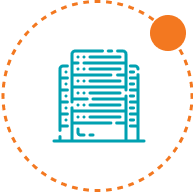Discover the secrets to effective web data extraction with our comprehensive guide on optimizing proxies. Gain a competitive edge by learning:
Discover the secrets to effective web data extraction with our comprehensive guide on optimizing proxies. Gain a competitive edge by learning:
Let’s Start!
In the modern digital era, proxies have become essential tools for businesses and individuals alike. Proxies serve as intermediaries between users and the internet, enabling secure, anonymous browsing, and facilitating web scraping and data extraction tasks. They allow users to bypass geo-restrictions, avoid IP blocks, and access critical data from various sources, empowering them to make informed decisions and stay competitive in their respective industries.
NetNut’s premium residential proxies are designed to provide a seamless, high-performance experience for users. With a vast network of over 52 million residential IPs, users have access to a diverse pool of resources for their data extraction needs. The robust infrastructure, exceptional speed, and reliability of NetNut’s proxies ensure efficient and seamless data collection. Furthermore, NetNut’s customizable solutions and unparalleled customer support make it a top choice for businesses and individuals looking to optimize their data extraction processes.
Techniques


1. Geo-targeting
Geo-targeting enables users to route their requests through proxies located in specific countries or regions. This feature is particularly useful for bypassing geo-restrictions and accessing location-specific content. To optimize performance, choose a proxy provider like NetNut that offers a wide range of geo-targeting options, allowing you to target your desired locations with precision.
2. Proxy rotation frequency
Proxy rotation frequency refers to how often a new IP address is assigned to your requests. Frequent rotation reduces the risk of IP blocks and bans, as it makes it harder for websites to identify and track your activity. To optimize performance, adjust the proxy rotation frequency based on the nature of your tasks and the websites you are scraping. For more sensitive tasks or sites with stricter anti-bot measures, consider increasing rotation frequency.

Load balancing involves distributing requests evenly across multiple proxies to optimize performance and minimize the risk of overloading any single proxy. An intelligent load balancing system takes into account factors such as proxy speed, location, and availability, ensuring that requests are routed through the most suitable proxies. Utilize proxy providers that offer intelligent load balancing to enhance the efficiency and reliability of your data extraction tasks.

Effective bandwidth management ensures that you make the most of your proxy resources without overburdening them. To optimize performance, monitor your bandwidth usage and adjust it according to your needs. Consider using proxies with unlimited bandwidth or providers that offer flexible bandwidth options, such as NetNut, to avoid throttling and maintain optimal performance.

During data extraction, errors and timeouts may occur, potentially disrupting your workflow. To optimize performance, implement robust error handling and retry mechanisms in your web scraping scripts. Automatically retry failed requests with a different proxy, and implement exponential backoff to progressively increase the waiting time between retries. This approach minimizes the impact of errors and ensures the continuity of your data extraction process.

Selecting the appropriate tools and libraries for web scraping is crucial for efficient data extraction. Some popular options include Beautiful Soup and Scrapy for Python, Cheerio and Puppeteer for JavaScript, and Nokogiri for Ruby. Consider the features, ease of use, and community support when selecting the best tool for your specific needs.

To create efficient and robust web scrapers, follow best practices such as:

AJAX and JavaScript-heavy websites can be challenging to scrape due to dynamic content loading. Use headless browsers like Puppeteer or Selenium to render JavaScript and access the dynamically generated content. Alternatively, explore options such as intercepting AJAX requests or using APIs, if available, to access the required data more efficiently.

CAPTCHAs and other anti-bot measures can disrupt your web scraping process. To bypass them, use techniques such as:
Note that bypassing CAPTCHAs may violate website terms of service, so proceed with caution.

Customizing request headers and user agents can help you blend in with regular web traffic and avoid detection. Rotate user agents to mimic different browsers and devices, and customize headers like “Referer” and “Accept-Language” to appear more natural. Be mindful of potential legal and ethical implications when manipulating request headers.

To ensure your web scraping activities are compliant with website terms of service, follow these guidelines:

IP blocks and bans can disrupt your web scraping process. To overcome them, consider these strategies:
1. Use residential proxies, which are less likely to be flagged as suspicious compared to data center proxies.
2. Rotate IP addresses frequently to avoid detection.
3. Implement delays between requests to mimic human browsing behavior.
To ensure data accuracy and reliability, follow these best practices:
1. Validate and clean the extracted data using regex, parsers, or other data cleaning techniques.
2. Use multiple proxy sources to avoid reliance on a single provider.
3. Monitor the quality of your proxies by regularly checking their success rate and performance.
When handling concurrent requests, it’s crucial to manage your proxy pool effectively. Some tips include:
To maintain anonymity during web scraping, rotate your proxies using these methods:
Regular monitoring and troubleshooting of your proxies can help you identify and resolve issues promptly. Some tips include: